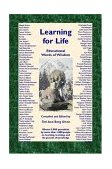


Robert E. Lee (1807-1870)January 19 is a day of celebration in some southern states. It is the birthday of Robert E. Lee, commander-in-chief of the Confederate Army during the Civil War. Lee is considered to be among the greatest generals, and remains one of the best-loved and respected men in American history. Lee was admired not only by his own soldiers, but by northerners as well for his fine character. He was a devout Christian and always attended church wherever he was stationed. He stood up for those he loved and for the convictions he held. He tried to live a godly life and excelled at everything he did. He was a fine example of how people should live. Robert Edward Lee was born in Stratford, Virginia, in 1807, to one of the South’s leading families. His father, Henry “Light Horse Harry” Lee, had been a famous general in the Revolutionary War. Several other members of his family were important in government and two of them had signed the Declaration of Independence. Lee’s boyhood was spent on the family’s large plantation in Virginia. His father was often gone away and he died when Robert was only 11 years old, so Robert grew very close to his mother. She was charged with the entire care of her five children, their religious training, and their education. She read to Robert, taught him the Christian faith, showed him how to pray, and also instructed him in everything else. Although Lee had little opportunity for formal education in his early years, he entered the United States Military Academy at West Point when he was 18 years old and graduated with honors. He wanted to be a soldier like his father. During the fifteen years following his graduation, Lee had many different assignments as an army officer. In the Mexican War, he was known for his skill and courage. Many of his commanding officers said that he was the best soldier they had ever seen. In 1831, Lee married his childhood friend and distant cousin Mary Custis, the great-granddaughter of George Washington’s wife, Martha. Their marriage united two of Virginia’s “first families.” They had seven children and lived in the Custis mansion in Arlington, Virginia, on a hill above the Potomac overlooking Washington, D.C. The estate is now the site of Arlington National Cemetery. Lee was a loving father and husband, but military obligations often took him to remote locations. Mary and the children remained at the plantation where she oversaw the children’s early education. Mrs. Lee read Latin, French, and Greek as well as four daily newspapers. Their home life revolved around religion and education, art and music, food and hospitality, gardening and outdoor activities. When General Lee was at home, he would play with the children and read to them in the evening. In 1852, Lee was appointed superintendent of the West Point Military Academy and served there until 1855. Then he was made a lieutenant colonel and was assigned to the Texas frontier, where he patrolled the borders. Lee was promoted to colonel in 1861, but when Texas dropped out of the Union he was sent back to Washington. Since the southern states were leaving the Union, it looked like war was inevitable. President Abraham Lincoln asked Lee to command the Union army, and Lee had to make the hardest decision of his life. He loved his country and was not in favor of a divided nation, but he was loyal to Virginia and could not lead a fight against his home state. So he declined President Lincoln’s offer and resigned from the United States Army. Two days later, Virginia decided to leave the Union. The governor of Virginia asked Lee to take command of its soldiers, and Lee accepted. In less than two months, Lee raised an army of nearly 50,000 men. Jefferson Davis, the president of the Confederacy, made Lee his military adviser. Before long, Lee proved to be a military genius and was promoted to the rank of general. Lee scored some brilliant military victories in Virginia, but he lost significant battles at Antietam, Maryland and Gettysburg, Pennsylvania. Lee was made commander-in-chief of all the Confederate forces in February, 1865. At that time the Confederate army was already in retreat and they fought a losing war for almost two years. The northern armies were much larger and better supplied. Finally on April 9, 1865, Lee surrendered to General Ulysses S. Grant at the Appomattox Court House in Virginia. Grant refused to take Lee’s sword out of respect for the great southern general. Lee’s home at Arlington was seized by the government, he lost his citizenship, and he had no income. Nevertheless, Lee wanted the southerners to accept their defeat without bitterness. Thus, he was a great influence for peace and friendship between the North and South. He hoped that they would work together for a prosperous, united nation once more. “So far from engaging in a war to perpetuate slavery, I am rejoiced that Slavery is abolished. I believe it will be greatly for the interest of the South. So fully am I satisfied of this that I would have cheerfully lost all that I have lost by the war, and have suffered all that I have suffered to have this object attained.” (General Robert E. Lee, May 1, 1870.) Lee spent months recuperating physically and mentally. At 58 years old, he accepted an offer to become president of Washington College in Lexington, Virginia. Lee made many improvements to the college. However, he never fully regained his health. Lee died in 1870 in his home at Washington College. The college was later renamed Washington and Lee University in his honor. References www.sonofthesouth.net/leefoundation/Leeschildhood.htm (Robert E. Lee's Childhood, taken from R. E. Lee, a biography by Douglas Southall Freeman, Chapter II, 1934.) http://penelope.uchicago.edu/Thayer/E/Gazetteer/People/Robert_E_Lee/FREREL/home.html (A complete transcription of the 2400 page 4 volume R. E. Lee, by Douglas S. Freeman, that won the 1935 Pulitzer Prize for Biography and is still viewed as the definitive biography of Robert E. Lee.) www.nps.gov/history/museum/exhibits/arho/print.html (Arlington House - The Robert E. Lee Memorial.) www.us-civilwar.com/lee.htm (Robert E. Lee biography from The Columbia Encyclopedia.)
Contact: . Thanks! Please click here for reprint permission.


These pages are a continuous work in progress.
|
Help Support this Site
and purchase items via our affiliate links. Thank you!
 
Thank you for visiting my |

